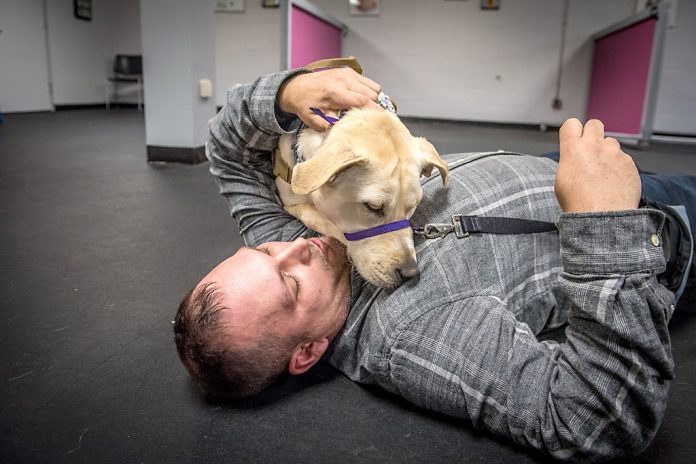Alpha Bravo Canine pairs veterans with service dogs to help combat anxiety.
U.S. Army combat veteran Frank Hudman is not a big fan of IKEA.
His aversion to the Swedish furniture retailer has nothing to do with the merchandise or the people who work there. But it’s the surroundings that really get to him.
It’s the crowds and the mazey layout of the aisles.
“IKEA is my arch-nemesis. I was there with Lydia two weeks ago and she pulled us out of there,” Hudman said. “She totally picked up on it when my anxiety was about to take over. She touched my hand and diverted my attention.”
Lydia is Hudman’s service dog-in-training. A 20-month-old yellow lab mix, she and her littermates were once dumped on the side of a road and left to die. But Philadelphia’s Animal Care and Control Team rescued them. Then the Alpha Bravo Canine service dog program adopted Lydia.
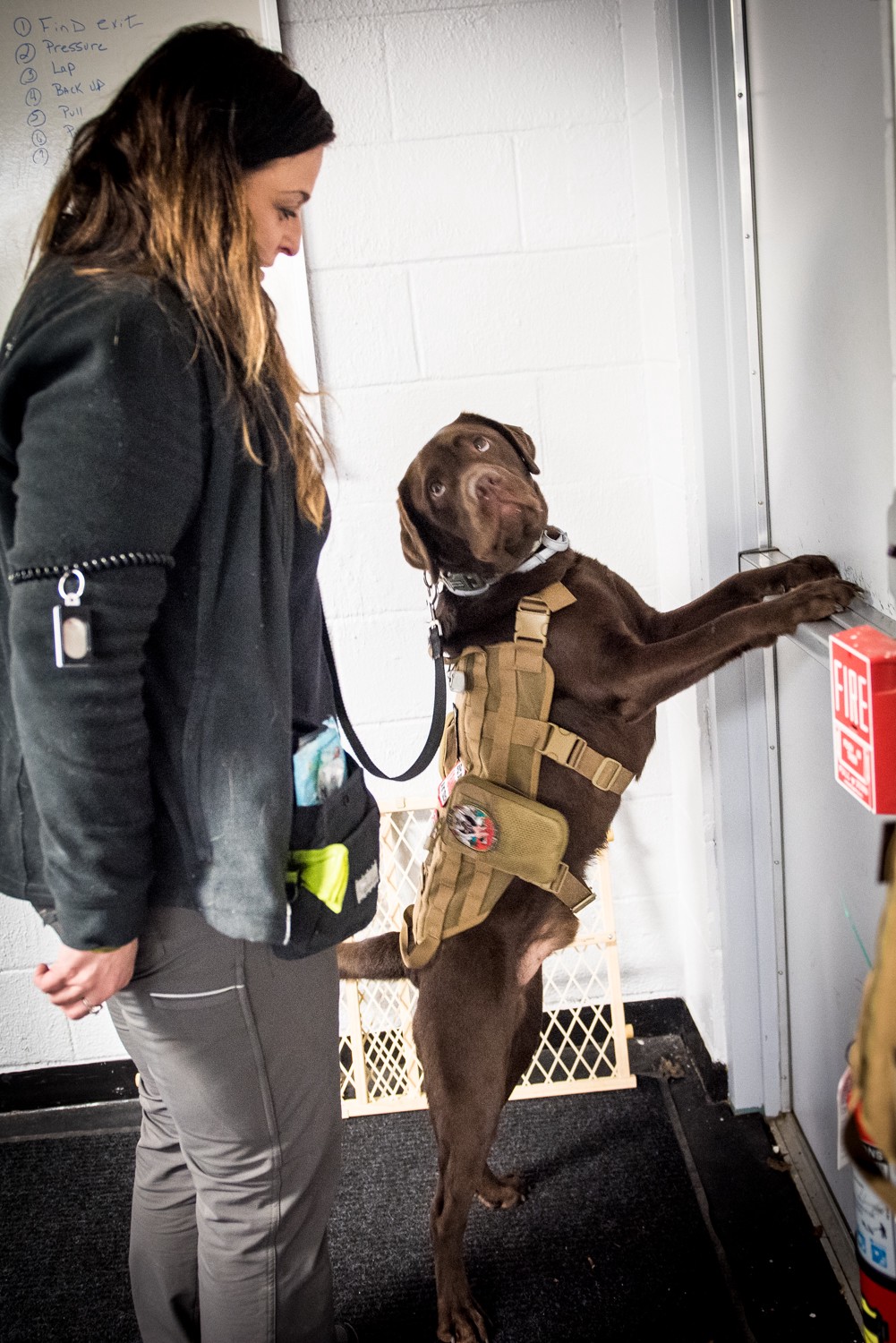
Co-founded two years ago by Bridesburg’s Kevin Daly and his mom Jennifer Green — a professional dog trainer from Academy Gardens — Alpha Bravo Canine is one of the nation’s few veteran-specific service dog training programs. Green and Daly are planning to pair Lydia with Hudman permanently in a few weeks’ time. It will be the program’s first service dog placement with a troubled veteran.
Hudman, 42, is a South Philly native who lives with his dad near the Temple University campus and attends Community College of Philadelphia. He served as a combat engineer with the Army air cavalry in the Middle East from 1992–98 and again from 2008–14. It was high-intensity, high-danger and high-stress duty.
“I got blown up twice,” he said.
Hudman is on permanent disability, but you wouldn’t notice anything amiss with him physically. It seems his most-enduring injuries are internal. He sometimes feels uncomfortable around other people … and for good reason. In combat, enemies prefer to target groups.
“When I was in Afghanistan, we were under attack a lot. The bigger the crowd, the more of a target we were,” he said.
Loud, sudden noises and unfamiliar or complex surroundings can heighten his anxiety. Then Hudman will find himself desperate for the nearest exit.
“Guys who have been involved in ambushes overseas can have trouble in crowds,” Hudman said.
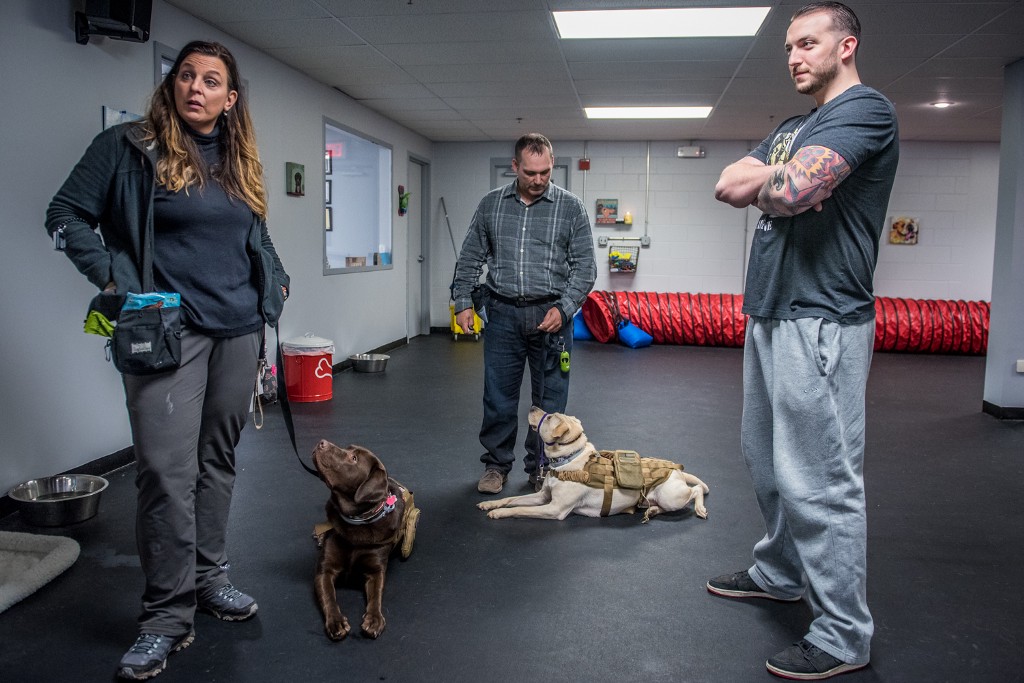
Through training and instinct, dogs like Lydia can help vets like Hudman find an escape route. Green and Daly are also helping Lydia develop a multitude of other skills. Once her training is complete, the dog will be able to position herself between other people and her handler, much like a living shield that helps to preserve his personal space. And when Hudman’s anxiety manifests itself in physical symptoms like elevated heart rate and shortness of breath, he will lie on his back while Lydia rests her head and paws on his chest, providing a gentle pressure that will help calm him.
Lydia will even be able to detect the first signs of trouble in Hudman, before the full onset of symptoms.
“Dogs will sense the different things that are going on with you. They will definitely sense anxiety,” Green said.
Lydia is being trained to notice if Hudman clenches his teeth or bites his nails, or if his breathing patterns change. If they are walking together, she will bump the side of his leg.
“She’s checking in to see if you’re OK,” Green said.
Lydia will use her snout to touch Hudman’s dangling hand and will initiate a diversionary interaction.
“Interacting with the dog also redirects what’s affecting (the handler),” Green said.
Compatibility between pet and handler is vital and not guaranteed. Alpha Bravo Canine wasn’t Hudman’s first contact with a service dog program. Before he met Daly and Green during a session of the city’s veterans court, he reached out to other groups.
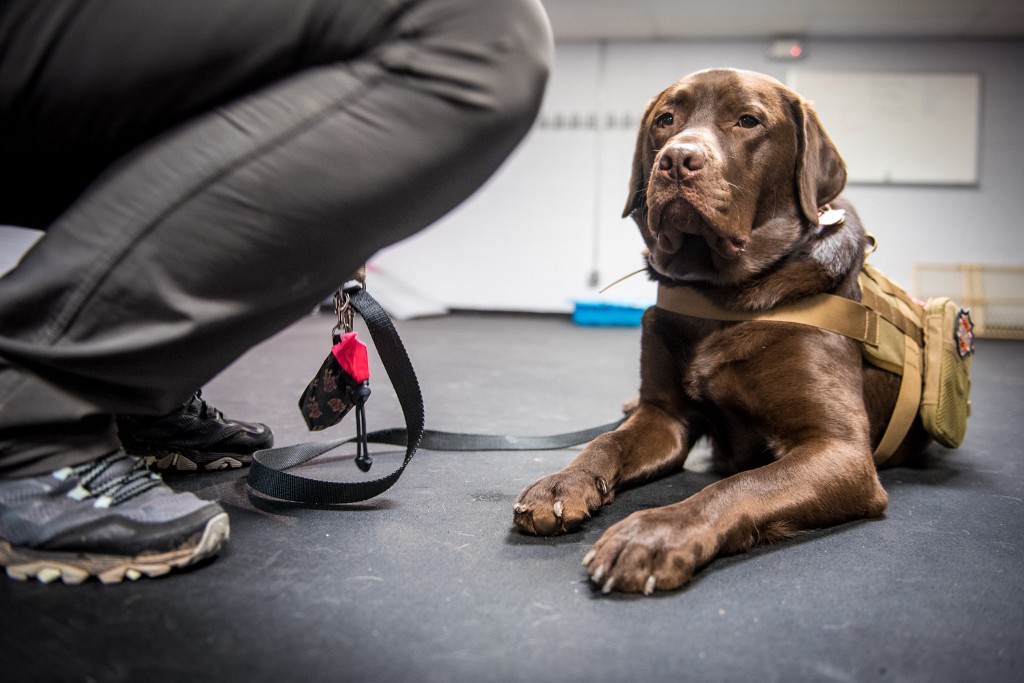
“I was actually looking for a service dog organization … but it didn’t pan out and I figured I’d be on VA medication for the rest of my life,” he said. “I’m glad I met Kevin and Jennifer, because I’m going to be able to get off a lot of medications.”
In his own research, Daly has found about 15 service dog organizations across the nation that claim to offer veteran-specific training. And very few if any specialize in veteran clients.
“We’re different because I’m a vet and my mom’s husband is a vet. And most of our board are vets,” Daly said.
“It’s a camaraderie thing with combat vets. There’s a bond,” Hudman said.
It costs about $30,000 to train a service dog over two years, but Alpha Bravo Canine does not charge a dime to its participating vets. Green trains the dogs voluntarily when she’s not running her Tail Waggers Dog Academy. The academy and vets program are both based at the Indian Walk Veterinary Center in Wrightstown Township, Bucks County, just north of Newtown. Green also conducts private in-home sessions.
“We live on donations and have fundraising all the time,” Green said.
After the permanent placement, the handler assumes all expenses in caring for the dog. It’s got to be a labor of love.
“Most of it really is the companionship,” Daly said.
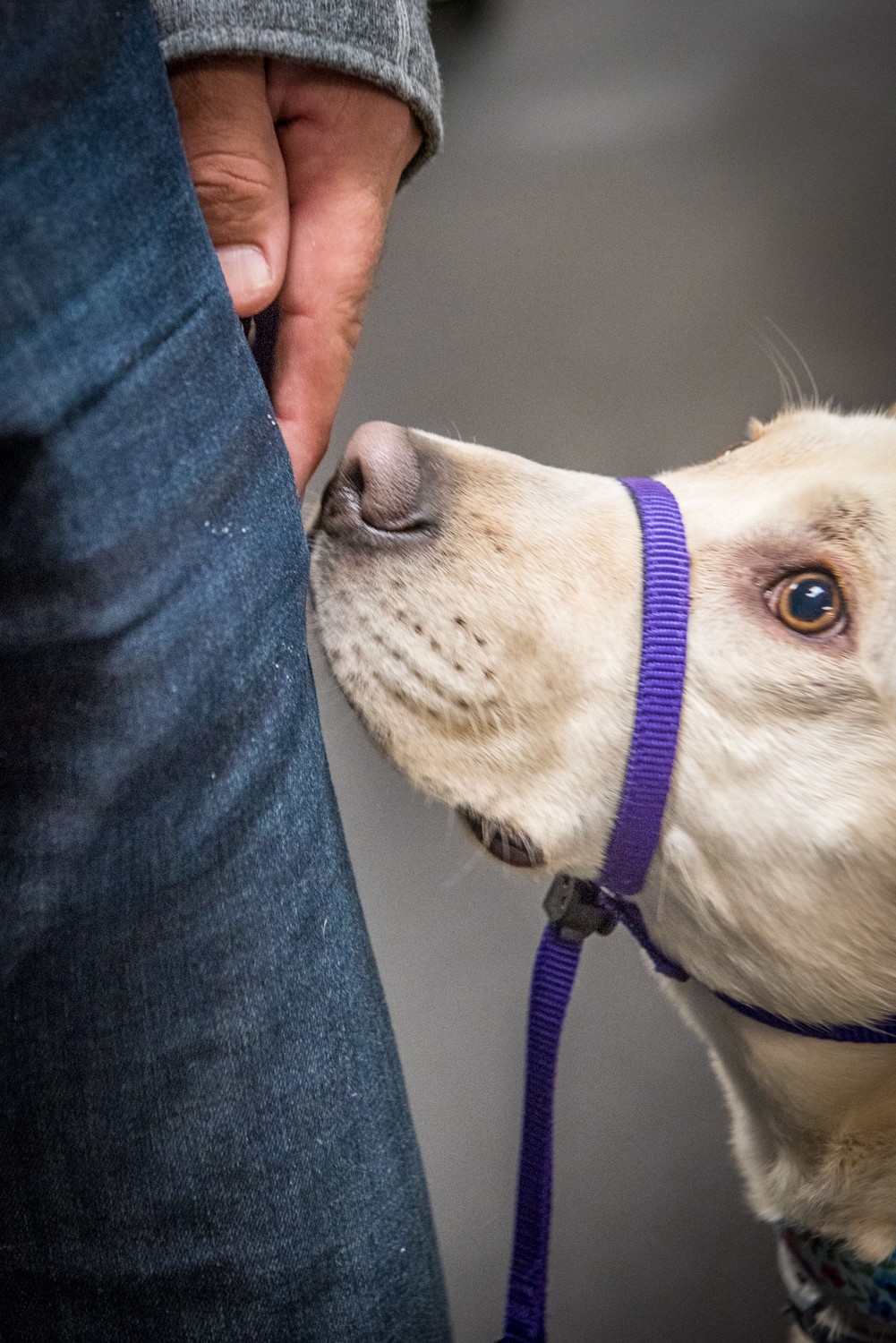
The program is also looking for more volunteers. Specifically, it needs more people to foster dogs in training. “Puppy raisers” pay nothing, but they must take part in weekly training sessions and do their homework. But that shouldn’t be a problem for those with an interest. The service dog candidates are selected for their relatively calm demeanor and dedication.
“Dog training is supposed to be fun,” Green said.
Alpha Bravo Canine has a thorough vetting process. Daly, a Marine who served in Afghanistan, oversees veterans affairs. Candidates must show their military discharge papers and demonstrate their need. They must be emotionally compatible with the prospective service dog.
Initially, Hudman had his eye on Echo, a male chocolate lab that’s about 18 months old. Unlike Lydia, Echo was bred to be a service dog. But Lydia proved a better mate. It’s a lot like a marriage.
“You have to see if the person and dog work well together and that’s where they really helped me out,” Hudman said.
“Once the dogs get matched up with the vets, they go through an intense two- to three-week training,” Green said. “And they’re required to keep going to classes to learn more. They’re required to maintain those skills they’ve learned. It’s a life-long commitment.”
For more information about Alpha Bravo Canine service dogs, visit AlphaBravoCanine.org, email to [email protected] or connect with the organization’s Facebook and Twitter feeds. ••
William Kenny can be reached at 215–354–3031 or [email protected]. Follow the Times on Twitter @NETimesOfficial.



